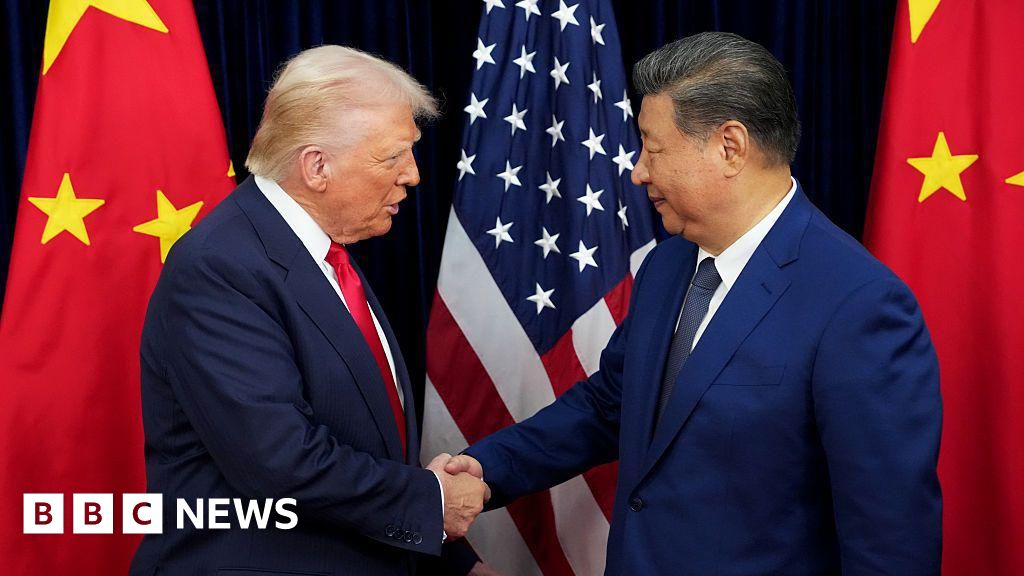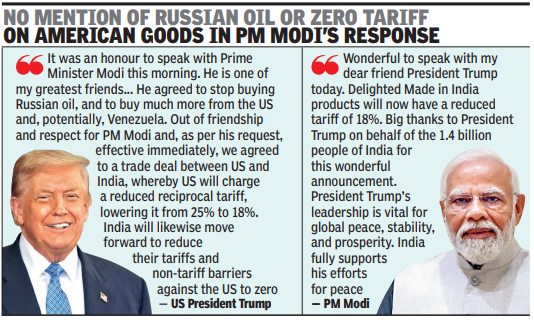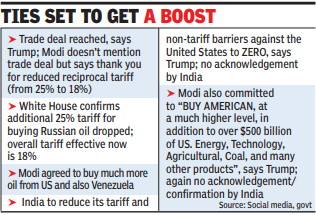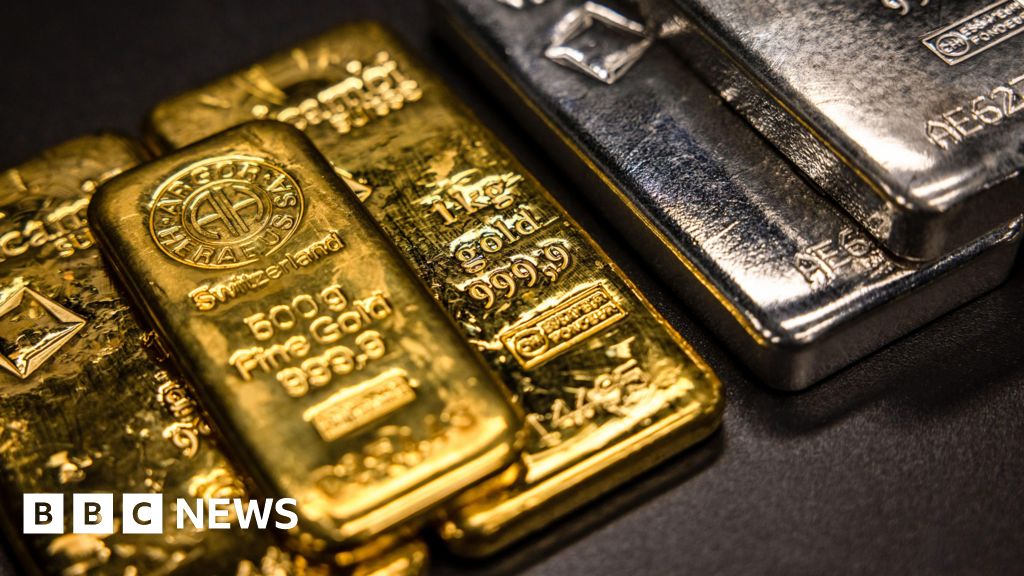Business
China to ease chip export ban in new trade deal, White House says

China will begin easing an export ban on automotive computer chips vital to production of cars across the world as part of a trade deal struck between the US and China, the White House has said.
The White House confirmed details of the deal in a new fact sheet after Xi Jinping and Donald Trump met in South Korea this week.
The nations also reached agreements on US soybean exports, the supply of rare earth minerals, and the materials used in production of the drug fentanyl.
The deal de-escalates a trade war between the world’s two largest economies after Trump hit China with tariffs after he entered office this year, leading to rounds of retaliatory tariffs and global business uncertainty.
Chinese Embassy in Washington spokesman Liu Pengyu told the BBC in a statement that details of the agreements reached had been shared by “competent authorities”.
“China-US economic and trade relations are mutually beneficial in nature,” he said.
“As President Xi Jinping noted, the business relationship should continue to serve as the anchor and driving force for China-US relations, not a stumbling block or a point of friction.”
Speaking on Sunday following the release of the deal details, Treasury Secretary Scott Bessent told CNN: “We don’t want to decouple from China… (But) they’ve shown themselves to be an unreliable partner.”
Much of what is in Saturday’s fact sheet was announced by Trump and other officials following the meeting between the two leaders.
Trump had described the talks, held in South Korea, as “amazing”, while Beijing had said they had reached a consensus to resolve “major trade issues”.
One of the issues addressed in the deal was the export of automotive computer chips. There had been concern that a lack of chips from Nexperia, which has production facilities in China, could create global supply chain issues.
Nexperia is a Chinese-owned company, but is based in the Netherlands. About 70% of Nexperia chips made in Europe are sent to China to be completed and re-exported to other countries.
The fact sheet states that China will “take appropriate measures to ensure the resumption of trade from Nexperia’s facilities in China, allowing production of critical legacy chips to flow to the rest of the world”.
It follows Beijing saying on Saturday that it was considering exempting some firms from the ban.
Last month, the likes of Volvo Cars and Volkswagen warned a chip shortage could lead to temporary shutdowns at their plants, and Jaguar Land Rover said the lack of chips posed a threat to their business.
On other key issues, Beijing will now pause export controls it brought in last month on rare earth minerals – vital in the production of cars, planes and weapons – for a year.
The White House also said it would lower tariffs brought in to curb the import of fentanyl into the US, with China agreeing to take “significant measures” to deal with the issue.
Fentanyl is a synthetic drug manufactured from a combination of chemicals, and while it is approved for medical use in the US, the powerful and highly-addictive substance has since become the main drug responsible for opioid overdose deaths in the US.
The chemicals used in its manufacturing, some of which have legitimate uses, are mostly sourced from China.
On soybeans, China has committed to buying 12 million tonnes of US soybeans in the last two months of 2025, and 25 million metric tonnes in each of the following three years – which is roughly the level they were previously at.
China’s decision to stop purchasing soybeans from the US earlier this year denied American farmers access to their largest export market.
In response, Trump revived a bailout for farmers which was in place during his first term in office.
Business
Trade deal done, says Trump; PM Modi thanks him for cutting tariff to 18% – The Times of India

NEW DELHI/ WASHINGTON: After months of bruising trade tensions, India and the US on Monday announced a bilateral trade deal that will see Washington slash additional tariffs on Indian imports to 18%, from the current 50%, making it more competitive for textiles, leather and seafood exporters.While PM Narendra Modi, in a post on X, which followed US President Donald Trump’s announcement on Truth Social, said he had a wonderful conversation with “dear friend” Trump and thanked him on behalf of 1.4 billion people for the reduced tariff of 18% on Indian goods, he did not mention the trade deal at all in his post on X that followed Trump’s “wonderful” announcement.

PM Modi and Trump
Modi also did not comment on Trump’s claim that in their conversation the PM had agreed to stop buying Russian oil and purchase much more energy from the US, and potentially Venezuela. Trump had said Modi had agreed to stop buying Russian oil and to buy much more from the US — $500 billion of energy, technology and farm products — a step that the President claimed would help end the war in Ukraine.According to the American President, Modi also agreed to bring down tariff and non-tariff barriers against the US to zero. A US embassy spokesperson confirmed that the final tariff now on India is 18%, down from the earlier 50%. This is a better deal for India than countries such Vietnam, Bangladesh, Indonesia, South Korea and China, which face higher tariffs. The Trump-Modi conversation coincided with the visit of EAM S Jaishankar to US for a critical minerals ministerial that will be chaired by Secretary of State Marco Rubio this week.The announcement came six days after India and the EU announced the completion of talks for a comprehensive trade agreement.Trump leadership vitalfor global peace: ModiThe deal had drawn sharp comments from some members of the Trump administration, including attacks on the EU.In his X post, PM said, “When two large economies and the world’s largest democracies work together, it benefits our people and unlocks immense opportunities for mutually beneficial cooperation”. He added that Trump’s leadership was vital for global peace, stability, and prosperity. India fully supports his efforts for peace. Modi said he was looking forward to working closely with Trump to take the partnership to unprecedented heights.Apart from reciprocal tariff, Trump had announced an additional 25% tariff on India for its purchase of Russian oil.Trump said the US had agreed to the trade deal with India out of friendship and respect for Modi, and at the latter’s request. “Our amazing relationship with India will be even stronger going forward. PM Modi and I are two people that GET THINGS DONE, something that cannot be said for mos,” he added.Trump in his social media post also said that it was an honour to speak with Modi whom he described as “one of my greatest friends and, a Powerful and Respected Leader of his Country”.

Ties set to get boost
While the US had acknowledged in past few months that India had cut down its Russian purchase, it had not eliminated the additional tariff.Trump also said, “We spoke about many things, including Trade, and ending the War with Russia and Ukraine. He agreed to stop buying Russian Oil, and to buy much more from the US and, potentially, Venezuela. This will help END THE WAR in Ukraine, which is taking place right now, with thousands of people dying each and every week!”Following the announcement last week of the successful conclusion of FTA negotiations with EU, India had suggested that India and US might be close to finalising the trade agreement they have been discussing since Feb last year.Trump’s disclosure of the trade deal was preceded by two India-related posts a few hours before, one of which featured him and Modi on a magazine cover with the caption “The Mover and the Shaker”. Another post featured New Delhi’s India Gate, which Trump called “India’s beautiful Triumphal Arch” and said, “Ours will be the greatest of them all!” — referring to a similar monument he wants to build in Washington DC.
Business
New York AG issues warning around prediction markets ahead of Super Bowl

New York Attorney General Letitia James speaks to the media, after she attended a hearing and pleaded not guilty to charges that she defrauded her mortgage lender, outside the U.S. District Court for the Eastern District of Virginia, in Norfolk, Virginia, U.S., Oct. 24, 2025.
Jonathan Ernst | Reuters
Days before Super Bowl 60, New York Attorney General Letitia James has a message for consumers: Be careful about placing trades on prediction markets.
“New Yorkers need to know the significant risks with unregulated prediction markets,” James said in a statement Monday. “It’s crystal clear: so-called prediction markets do not have the same consumer protections as regulated platforms. I urge all New Yorkers to be cautious of these platforms to protect their money.”
Prediction platforms like Kalshi and Polymarket are expected to generate billions of dollars in trading volume around the Super Bowl.
Consumers can make trades on game events — similar to online sportsbooks like DraftKings or FanDuel — as well as on predetermined outcomes, such as which companies will advertise during the Super Bowl, an issue CNBC Sport reported on last week.
James said the platforms’ products are bets “masquerading” as event contracts.
She warned there are concerns about the nascent prediction market industry, including “upholding prohibitions against insider betting and requiring regulatory review to ensure the financial stability and integrity of gambling operators.”
“Prediction markets may appear as modern, high-tech platforms for speculation or ‘forecasting,’ but in practice, many operate as unregulated gambling without the basic protections New York consumers both deserve and expect from properly licensed operators,” James said in the statement.
Prediction market contracts trade somewhat similarly to all-or-nothing options, with contracts priced between $0 and $1. The contracts trade up or down depending on the action.
In addition to contracts on Super Bowl commercials, both Polymarket and Kalshi are offering other trades related to the game, including on matters like “What songs will be played at the halftime show?,” “Who will attend the big game?,” and more traditional sportsbook “bets” such as “Seattle vs. New England: Most Rushing Yards,” as CNBC reported last week.
There are laws that prohibit insider trading on prediction markets, just as on traditional financial markets. But industry experts say they’re skeptical that the Commodity Futures Trading Commission, recently gutted as part of widespread government cuts, has the will or the means to police those problems.
Last week, CFTC Chairman Michael Selig said he had directed agency staff to withdraw a proposed rule that would have banned prediction trades on sports and politics. He said new rules would be coming.
Disclosure: CNBC has a commercial relationship with Kalshi.
Business
Gold and silver prices fall but FTSE 100 hits record high

Precious metal prices hit record highs in January as investors parked their money in “safe havens”.
Source link
-

 Sports6 days ago
Sports6 days agoPSL 11: Local players’ category renewals unveiled ahead of auction
-

 Entertainment6 days ago
Entertainment6 days agoClaire Danes reveals how she reacted to pregnancy at 44
-

 Business7 days ago
Business7 days agoBanking services disrupted as bank employees go on nationwide strike demanding five-day work week
-

 Fashion1 week ago
Fashion1 week agoSpain’s apparel imports up 7.10% in Jan-Oct as sourcing realigns
-

 Sports6 days ago
Sports6 days agoCollege football’s top 100 games of the 2025 season
-

 Sports6 days ago
Sports6 days agoTammy Abraham joins Aston Villa 1 day after Besiktas transfer
-

 Entertainment6 days ago
Entertainment6 days agoK-Pop star Rosé to appear in special podcast before Grammy’s
-

 Politics6 days ago
Politics6 days agoTrump vows to ‘de-escalate’ after Minneapolis shootings





